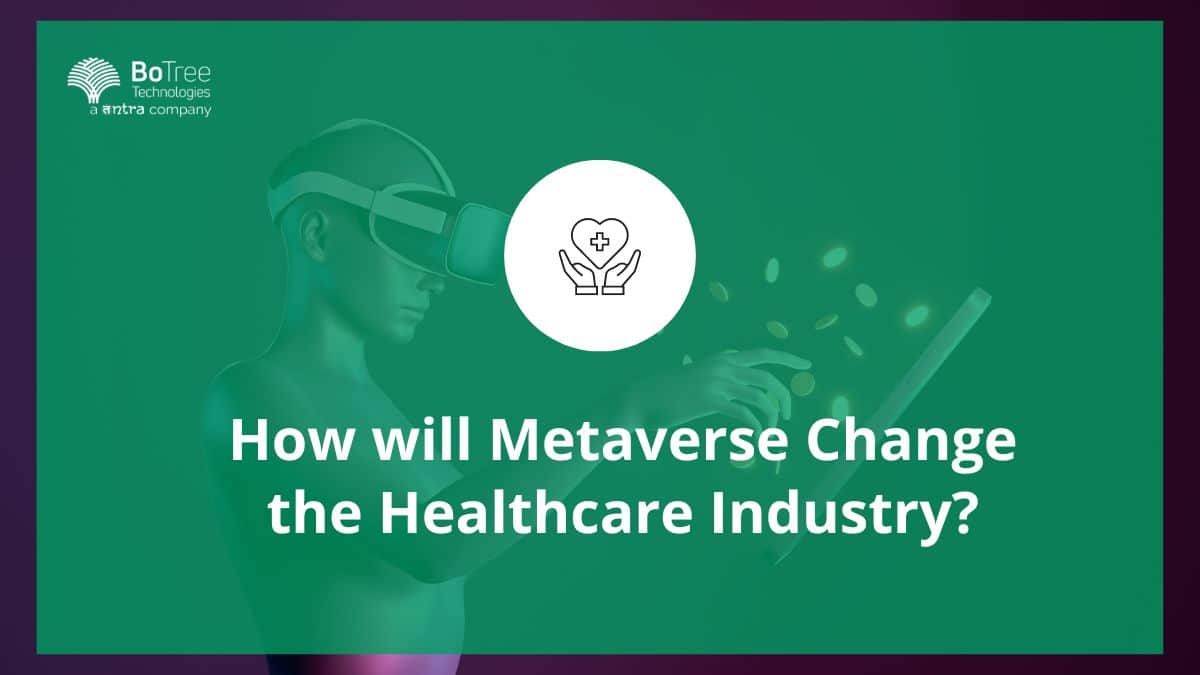
How will Metaverse Change the Healthcare Industry?
It’s a digital age, and it’s not just the tech industries that benefit from technological innovation. With the COVID-19 pandemic accelerating the focus on innovation in healthcare, there have been many new opportunities and business models for the health industry. With the rising interest in the larger metaverse concept for the future of work, what will this mean for the future of healthcare? What is the use of the Metaverse in healthcare market? Let’s take a look.
The Metaverse Concept
The metaverse is a broad concept of a digital working space where 3D technology, augmented reality and virtual reality create a new digital concept of how we work and play. Even though it can revolutionize how we work and communicate, there are still many concerns surrounding the metaverse. For instance, ExpressVPN’s study on metaverse workspace showed that more than half of workers worry about their privacy since employers will have easier access to their data. That is especially important for healthcare workers, who continually work with sensitive patient data. Many healthcare app development companies are already looking at the tricky issue of balancing security, privacy, and opportunities for new digital enhancements in the industry. We will see considerably more innovation in this field in the coming years.
How will the Metaverse change the Healthcare Industry?
There are many potential benefits of the use of metaverse in healthcare, from innovating how people access healthcare to technological changes and ways physicians and other interested parties conceptualize, develop, and innovate in healthcare spaces. Currently, the overall size of the metaverse market is estimated at $23B, expected to grow at a compounded annual growth rate of almost 40%. Metaverse healthcare companies are already beginning to expand, and the metaverse healthcare market size currently accounts for $6.85B and could top $72B by 2030.
Putting the Metaverse in Healthcare Industry
However, no matter the allure of digital spaces, how can we take healthcare, an industry that relies on in-person interaction, and switch to a similar online working space? It is one thing for a healthcare app development company to embrace new technology, but medicine is an entirely different ballgame. What is the current metaverse in healthcare use cases?
Let’s be brutal. Our current healthcare spaces need to be improved. We have rising long-term care and chronic disease needs, aging populations, a lack of the healthcare workforce, and severely limited resources not always being focused on the correct issues. Combine that with increasing political tinkering in the healthcare space, as we saw with the pandemic, and it is a recipe for future innovation and better practices. Can the metaverse concept help enhance that? What are the benefits of metaverse in healthcare?
Collaborative Healthcare
Technological collaboration in communication has been one of the fastest developing sectors during the pandemic and post-pandemic. We’ve seen a boom in workforces moving to technical means as their primary means of communication and interaction. So it can be no surprise that many examples of the use of metaverse in healthcare have already actualized and bear a remarkable similarity to other technological innovations in the workplace.
So all the usual candidates for a general metaverse workplace will count for the back office and administration side of healthcare – think office work, staff education and training, and conferences held in a realistic 3D space powered by immersive tech advances. However, one of the greatest potentials for the metaverse in digital healthcare is allowing healthcare workers to ‘meet’ face-to-face without the need for complex conferencing tools and venues.
Likewise, the ability to create ‘digital twins’ means new machines, procedures, and systems can be tested for vulnerabilities and faults before being trialed in the physical environment. For example, tighter patient flow can be trialed with advanced analytics, then near-millions of potential scenarios crash-tested against it. On the veterinary side of healthcare, we can use these digital spaces to model scenarios to test animal behavior and boost animal welfare initiatives. With the ability to realistically create and use immersive models in 3D, new scopes of innovation and research can be unveiled.
Checkout the amazing Healthcare Platform built by our expert Healthcare Developers: Therapist Search Platform
Healthcare Education
With additional scope from these digital twins, alongside VR and AR technologies, a revolution in healthcare education is also on the table. This goes for new generations of healthcare practitioners, who can learn and experiment in ‘safe’ 3D spaces, learning patient encounters, surgical procedures, and more without the need to trial their inexperience on actual patients. However, it also goes for healthcare initiatives and outreach for patients. Imagine training a newly diagnosed diabetic patient on their continuous glucose monitor with no risk. Or bypass the lack of local infrastructure in poorer areas and even nations to bring comprehensive basic healthcare learning environments to life, with all needed being an internet access point. Metaverse in healthcare industry is going to prove useful when it comes to making healthcare education easier.
Clinical Care
Remote care technologies have become a big deal in the current healthcare environment, again driven by pandemic lockdowns. Telehealth is convenient and can be a game-changer for communities with poor healthcare infrastructure. AR could allow access to information while maintaining a sterile room. Expert surgeons have already been trialing ‘remote surgery’ to help extend relief efforts in developing nations, and a more immersive experience could significantly maximize this. Collaborative medical procedures and the input of specialists could dramatically be cost-reduced, and AI can empower the clinical decision-making process. As we’ve already mentioned, treatment plans can become more tailored with help of a software development company, and education surrounding patient outcomes from diagnostics makes it easier to access and more thorough.
Gamifying Health
While a more controversial healthcare area, it is also worth considering how gamifying healthcare and incentivizing patient wellness can help impact health outcomes. We all know that few people meet the minimum recommended exercise guidelines for good health. And changing bad habits is hard. Without an invested medical system and investment from the patient side, the effects of chronic health conditions and an aging population will only snowball. ‘Play to earn,’ ‘move to earn,’ and ‘learn to earn’ could all be leveraged to improve patient compliance and health outcomes.
However, this will also raise salient points around issues like data handling and who can access our medical records. Of course, any technological innovation raises questions like this, and it is hardly unique to healthcare or the metaverse. Theoretically, digital ethics should be the same as conventional ethics. Still, the greater the ability to interfere and gather data, the more ethical questions are raised, especially with community-built spaces and open-source codes.
Read more: Top 12 Most Popular Healthcare Applications Examples
Conclusion
The use of metaverse in healthcare has immense potential to harness the power of digital literacy to make great strides in high-end and community welfare and healthcare. Still, it is not without its ethical conundrum. However, the metaverse in the healthcare market has real potential to be a fantastic equalizer in the modern world and innovate how patients receive care and how healthcare workers deliver that care.
From greater collaboration and immersive learning to incentivizing people to participate in their health and wellness more actively and improve patient education and outcomes, the intersection of digital and natural spaces could be a game-changer. And as the metaverse concept expands, the potential will grow with it. While even a decade ago, it would have seemed fantastical to tell healthcare practitioners that one of their biggest partners in healthcare could be an enterprise software development company, that’s a new reality facing us. We are standing on the cusp of a healthcare revolution. Now it is time to see where it takes us.




